As much a political and societal commentary as a troubled gay love story between a privileged Tel Aviv lawyer and a Palestinian student. By turns tender and tense, sensual and suspenseful.
Israel, 2012. Language: Hebrew, Arabic. 96 minutes. Cert: CLUB. Director: Michael Mayer. Starring: Nicholas Jacob, Michael Aloni, Jameel Khouri, Alon Pdut, Loai Noufi
Read more:
Los Angeles-based, USC-trained Israeli director Michael Mayer makes a gripping feature debut with Out in the Dark, a troubled gay love story between a privileged Tel Aviv lawyer and a Palestinian student that is by turns tender and tense, sensual and suspenseful. In Mayer’s assured hands, a drama that could easily have become schematic instead pulses with urgency, longing and raw feeling, morphing smoothly in its final third into a lean thriller.
Love across political, sectarian and geographic boundaries is a minefield rife with cliché, but Mayer and co-screenwriter Yael Shafrir mostly sidestep that danger with grace and intelligence. Their film benefits from the instant chemistry between attractive lead actors Nicholas Jacob and Michael Aloni, and from the detachment with which the script considers both Palestinian fanaticism and Israeli Security Forces tactics as dueling cancers. It doesn’t pretend to dig deep into the Mideast conflict, but it does make resonant points about the tentacle-like reach of that divide, even for people determined to keep politics out of their relationships.
Shooting digitally, wherever possible with available light sources, Mayer and cinematographer Ran Aviad take their cue from the film’s title. They create a gritty visual palette of dark textures and murky nighttime scenes, making extensive use of closeups to probe the characters’ hidden worlds.
That approach is evident from the outset as Nimr (Jacob) scrambles over the fence into Tel Aviv from his family home in Ramallah on the West Bank, dodging patrol cars along the way. His journey is sharply modulated through sections on foot and by bus –underscored by Mark Holden and Michael Lopez’s moody ambient music – before making a sudden shift into club-scene mode as he enters a gay bar. Unfolding mostly through the title credits, the opening economically conveys a sense of constricted freedoms, with much at stake.
Dreamboat Jewish lawyer Roy (Aloni) hits on Nimr at the bar, sparking an easy rapport and mutual attraction that soon leads to romance. A psychology student doing his Masters at Birzeit University, Nimr around the same time is issued a partial visa to study in Tel Aviv, which he eyes as a stepping stone to a Ph.D. at Princeton. But that dream seems more precarious when his flamboyant Arab friend Mustafa (LoaiNoufi) is discovered hiding illegally and sent back to the West Bank to be brutally beaten and murdered as a suspected collaborator.
Nimr’s position is complicated by the fact that his brother Nabil (Jameel Khouri) is a member of the hardline extremist group responsible for Mustafa’s death. And while scenes with his mother (Khawlah Haj) and kid sister (Maysa Daw) have a lovely naturalness and warmth, it’s clear that the secret of Nimr’s sexuality is a ticking time-bomb.
He tries to save his relationship with Roy while being pulled between his fear over the dangers to which Nabil is exposing their family, and the cold manipulations of an Israeli security chief (AlonPudt). But Nimr’s options grow steadily narrower.
Particularly through the latter developments, Mayer shows admirable restraint in his use of music, keeping it low-key and brooding to sustain tension in strictly realist terms, rather than cranking it up to artificially heighten the thriller aspect. Much of the visceral impact comes from Aviad’s nervy handheld camera and Maria Gonzales’ mercurial editing.
Touching poignantly on the suffering of gay Palestinians rejected by their families and community, Mayer and Shafrir build a sturdy outsider drama that benefits from the shaded juxtaposition of Nimr and Roy’s backgrounds. Having absorbed the lessons of harsh reality, Nimr remains fatalistically pragmatic, allowing himself hope only in brief interludes. The product of a cushioned upbringing in a well-connected family, Roy persists in his somewhat naïve belief that they can work things out by going through authority channels.
Both leads tackle their roles with sensitivity and conviction. But first-time screen actor Jacob is particularly affecting as a persecuted man dealing with entrapment while grasping at the emotional lifeline offered by Roy. The scenes in which Nimr is ripped apart by the dishonor he has brought upon his family even as they behave monstrously toward him show how deep these conflicts cut.
The script has an occasional tendency to map out divergent points of view a little too neatly. But Aloni is effective in depicting the festering discomfort of an idealist constantly faced with the limits in his liberal parents’ understanding of him.
It’s a sign of how well Out in the Dark works that we are fully invested in seeing Nimr and Roy overcome obstacles and stay together. But it’s also a shrewd choice of the filmmakers that they end instead on a note of somber ambiguity. – David Rooney, Hollywood Reporter
Winner – Audience Award, Miami Gay and Lesbian Film Festival 2012


